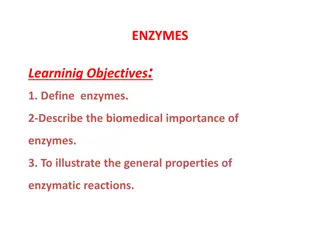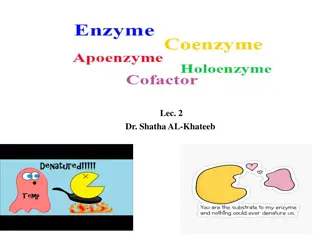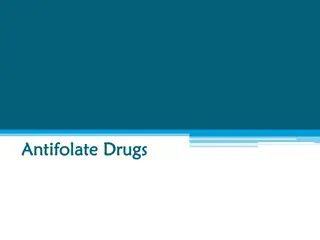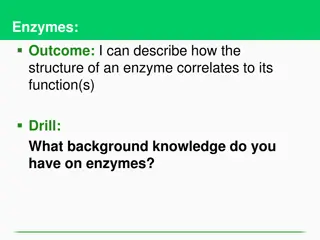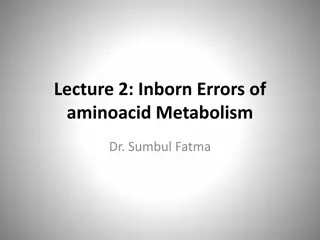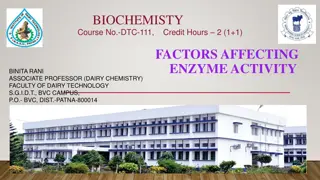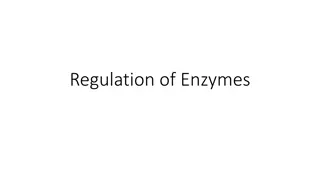Understanding Enzymes: Importance and Clinical Applications
Enzymes are vital proteins that speed up chemical reactions without being consumed, playing a crucial role in various physiological processes. They require cofactors for optimal function, and their levels in blood can indicate tissue damage or disease. Learning about enzymes is essential for underst
6 views • 25 slides
Understanding Enzyme Function: The Key Steps and Importance of Cofactors
Enzymes play a crucial role in catalyzing biochemical reactions by forming enzyme-substrate complexes and facilitating changes in substrate molecules to product molecules. The process involves four steps: proximity of enzyme and substrate, binding at the active site, catalysis leading to substrate a
0 views • 39 slides
Mechanism of Action of Antifolate Drugs in Bacterial Synthesis
Folate-derived cofactors are crucial for cell growth, with bacteria relying on de novo synthesis while humans need preformed folate. Antifolates like sulfonamides and trimethoprim disrupt folate synthesis in bacteria, inhibiting DNA synthesis. This article explores how these drugs target bacterial e
0 views • 34 slides
Understanding Enzyme Structure and Function
Enzymes are protein catalysts that accelerate chemical reactions by lowering activation energy. They exhibit substrate specificity and bind to substrates at their active sites. Enzymes may require cofactors for optimal function and can be regulated by various molecules affecting their activity.
0 views • 17 slides
Understanding Inborn Errors of Amino Acid Metabolism
Explore the world of inborn errors of amino acid metabolism through lectures by Dr. Sumbul Fatma. Discover conditions like Phenylketonuria (PKU), Maple Syrup Urine Disease, Albinism, and more, caused by enzyme deficiencies due to gene mutations. Learn about classical PKU, hyperphenylalaninemia, and
0 views • 25 slides
Understanding Factors Affecting Enzyme Activity in Biochemistry
Enzyme assays measure substrate conversion to product under varying conditions like cofactors, pH, and temperature. Enzyme velocity represents the rate of a catalyzed reaction, typically reported as V0. Enzyme activity is expressed as mol of substrate transformed per minute, with enzyme unit and kat
0 views • 18 slides
Understanding Enzyme Regulation and Factors Affecting Enzyme Activity
Organisms carefully control enzyme production and activation as per varying needs and conditions within cells. Enzyme activity is influenced by factors such as pH, temperature, regulatory molecules, cofactors, compartmentalization, covalent modification, and feedback inhibition. Enzymes can be regul
0 views • 20 slides
